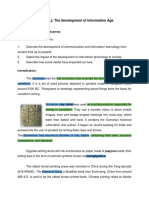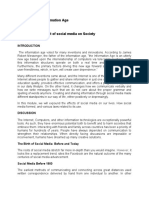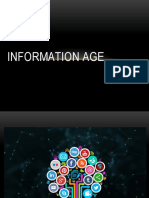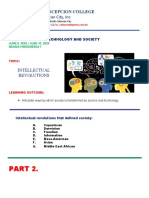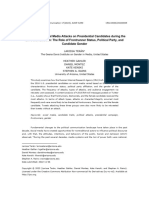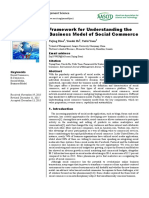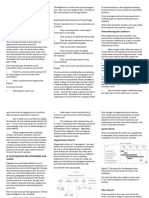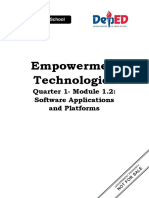0% found this document useful (0 votes)
12 views31 pagesLecture 7 - Information Age
The document outlines the evolution of the Information Age, highlighting key technological advancements from the 1970s to the present, including the introduction of the World Wide Web, smartphones, and social media platforms. It discusses the impact of social media on society, detailing both its advantages, such as connectivity and educational benefits, and disadvantages, including privacy issues and cyberbullying. The document emphasizes the significance of information technology in modern life, particularly for students.
Uploaded by
verzennynozonCopyright
© © All Rights Reserved
We take content rights seriously. If you suspect this is your content, claim it here.
Available Formats
Download as PDF, TXT or read online on Scribd
0% found this document useful (0 votes)
12 views31 pagesLecture 7 - Information Age
The document outlines the evolution of the Information Age, highlighting key technological advancements from the 1970s to the present, including the introduction of the World Wide Web, smartphones, and social media platforms. It discusses the impact of social media on society, detailing both its advantages, such as connectivity and educational benefits, and disadvantages, including privacy issues and cyberbullying. The document emphasizes the significance of information technology in modern life, particularly for students.
Uploaded by
verzennynozonCopyright
© © All Rights Reserved
We take content rights seriously. If you suspect this is your content, claim it here.
Available Formats
Download as PDF, TXT or read online on Scribd
/ 31



